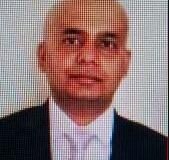Syed Mehdi Momin:: It is safe to say that the majority of the Bangladeshi youth– if not totally disgusted
are absolutelydisillusioned with politics as is practiced these days. These youths today find politics
extremely tiresome. Many young people don’t care about politics, they have the feeling, and perhaps
rightly so, that whatever government comes to power is going to be exactly the same as the previous
one. Most political parties are centered around individuals rather than a system of beliefs, in that sense
they are all similar despite being dissimilar. Many young people believe that corruption is not an
attribute of one party it’s an attribute of all political parties and governments in general. Political
apathy characteristic of our times stems from being witness to countless tenures known only for
fake promises and unfulfilled dreams, to the extent that it has become a joke.
The youth don’t see any reason why someone born with the golden spoon and who has never had
to think about looking for a job should be talking about unemployment, or hunger or per capita
income. He never had to go through the grind. Which degree or lineage in the world gives him the
right to formulate policies for people whose lives he knows so little of? It indeed is sad to notice the
sense of alienation and disconnect.
The student wings of whichever party is in power in Bangladesh have repeatedly clashed with
opposition to establish supremacy on the campuses of the public universities. As is well known
Bangladesh’s political parties all have student wings, with students often acting as ‘muscle’ for the
parties. In most cases, the authorities are forced to close down universities after violence and this is
hampering academic activities in universities.
A culture of immunity is prevailing among many members of the student and youth wings of the
ruling party. They are getting away with rampant arson, extortion, rape, murder and what not. They
are not content with crushing opponents using brute force, violent intra part feuds have become the
norm rather than the exception.
Today the youth needs guidance, reassurance and encouragement, not any lecture on compromise
or minding our own business only. The nation needs youth icons like Bill Gates and Mark Zuckerberg,
not any politician imposed as role model.
Of course the students in Bangladesh have a glorious history. In every movement our youth have
been at the vanguard. The 1952 language movement was virtually a movement propelled by the
youth.
It was they who sacrificed their lives to ensure the rightful place of our mother tongue. In 1966 it
was the students who took to the streets against the Hamudur Rahman education committee
report. Again in 1969 it was the youth who made possible the overthrow of dictator Ayub Khan
through the mass upsurge. The senior political leadership came into the picture only at the fag end.
Everyone knows about the heroism and sacrifice of the students in 1971.
Even after the Liberation War the youth have been at the forefront of all the political struggles. In
1990 the autocratic regime of HM Ershad was brought down by a grand alliance of student activists
of virtually all opposition political parties. During the military backed caretaker government rule it
was students of the various universities who showed the courage to come out in the streets to
protest against the injustices perpetrated by the then government.
However it can be safely said that the golden era of student politics came to an end in 1990. The
election of 1990 that was supposed to confirm our democratic ideals but instead became a vehicle
for guile and divisions. Student leaders, especially those of the two major political parties, shifted
their focus on personal gains. Those who run these universities, as part of their strategy to
accommodate politicians, were more than willing to cater to the student-apostles of the politicians.
Not only are the students, the middleclass in general too is more disenchanted with politics, or more
accurately politicians, than ever before. From the 1990s, economic reforms gradually improved
Bangladesh’s growth. Sustained by the successive governments those reforms boosted middle class
prospects most of all. Salaries soared (and will soar even more); previously hard-to-get luxuries like
homes, vehicles and consumer goods became affordable for the now upwardly mobile middle class;
new sectors like software and telecom provided world-class career options.
But none of this altered the by-now entrenched apathy of the middle class towards politics. The
general belief is that the growth has been achieved in spite of the government not because of it.
Middle class apathy has only been stirred by the ever more egregious instances of corruption and
crony capitalism on display. That, combined with the lack of transparency in political funding and the
blatant nepotism within most parties, has sealed middle class cynicism towards politicians.
Youth is the time when we are at our most idealistic selves. Later life being what it is in Bangladesh,
people tend to get cynical. But there is little place for cynicism among the youth. The youth believe
that it is possible for them to change the world. And even if they can’t change it, they will at least
make an attempt.
Now, it is often said that today’s youth lack idealism. Well, that is simply not true. They are as
idealistic as their predecessors of the 1960s or70s. However, the fact is that we are living in a
different time. Things cannot remain the same forever. The times and circumstances of the youth
today are not similar to what it was decades earlier. One must realise that today’s youth have all
grown up in a free country. Their mindset will definitely be different to those who grew up in a state
of subjugation. It is extremely difficult for a young man of 24 to understand how it feels like to be
discriminated just because you are a Bengali.
So with no alien foe in sight who will they fight against? Most of the young people today are
basically fed up with politics or more precisely politicians. They are apolitical. And who can blame
them?
The politicians are not exactly setting a perfect example. Are they? There is no such thing as internal
democracy in the political parties. The young people are seeing the veteran politicians shifting
allegiance for their narrow selfish ends. Politics in Bangladesh have become totally dominated by a
few major families.
There has been a criminalisation of politics on an unprecedented scale. The politicians have used the
youth as musclemen to terrorise other party members.
One can argue that the youth have let themselves be used and armed cadres are a recent
development. May be the quantity has increased but there always have been hooligans earlier too.
One need not retell the stories of NSF hooligans who ruled the roost in the 1960s. To combat them
Awami League decided to fight fire with fire and their student wing too resorted to violence. This is
not the place for putting the blame on anybody.
But the fact remains that violence in student politics had its seeds sown decades earlier. Now we are
reaping the fruits. It is classic Frankenstein syndrome.
If something drastic is not done, the level of violence will only increase. Passing the buck on the so-
called “misguided youth” is definitely not the answer.
Today’s world is a place where political boundaries are getting blurred.
To say that our youth have devoted followers of the degraded Western culture is to take an overly
simplistic view of things. The contemporary youth have a much greater exposure to other cultures.
In the present day world you can not remain a recluse. It is a reality that the youth today, the world
over, are heavily influenced by American culture and some say its worst aspects.
The Bangladeshi youth have not been an exception. However, they are still devoted to their own
culture too and are proud of it. Rabindra Sangeet is still a favourite with many. They are not the
stereotypes of a punjabi-clad Bengali'” bhadrolok” of yesteryears. Just because a young girl prefers
to be in jeans does not make her any less of a Bengali. Culture itself, after all, is an ever-changing
phenomenon. Our culture will be enriched if we interact with other cultures. We, of course, have to
make sure that it all does not become a one-way traffic.
Drug abuse is rampant in a section of today’s youth. It is impossible to deny it. This drug abuse, if not
checked will become the source of a great national tragedy in the near future. Again, the youth are
not solely responsible, even though admittedly the abusers and peddlers are mostly young. The
society has failed to take care of the youth.
A sense of frustration has crept in. There is little scope for employment and the general atmosphere
does not inspire confidence. Drug abuse is definitely not the answer. But what alternatives do they
have?
Well there are alternatives, This writer believes that the youth are entirely justified in feeling
disillusioned with politics and politicians. But disillusionment is not going to change a thing. It’s not
enough to say I’m disillusioned! What are they going to do? Light candles, write protest songs, have
overnight vigils somewhere, hunger strike for a couple of days? It doesn’t help.
You have to channelise that disillusionment and that rage. You cannot expect the change to come
miraculously out of thin air. If the youth do want things to change, they have to speak up. It is said
that the greatest tragedy is not the clamour of the strident voices of the bad, but the appalling
silence of the good. So, if they want that change, they have to jump into it, get their feet dirty, get
their hands dirty and fight from within. They cannot simply stand on the sidelines and say I’m
disillusioned.
 Weekly Bangla Mirror | Bangla Mirror, Bangladeshi news in UK, bangla mirror news
Weekly Bangla Mirror | Bangla Mirror, Bangladeshi news in UK, bangla mirror news






